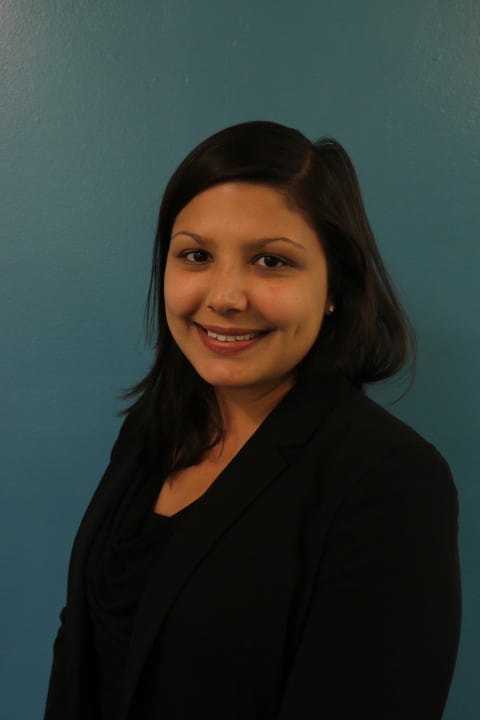“You’re just not college material.” That was what a high school counselor told my mother after she expressed interest in going to college. Defeated, she never even applied. My mom shared this with me when I was a senior in high school and beginning to apply to colleges. At the time, I was apprehensive about applying because I could not decide on a major and I worried about enrolling as an undeclared student. I contemplated: “College is so expensive! I don’t even know what I want to do with my life! I’m only 17! But I love school.” I always loved learning and knew I wanted to continue my education, but being without a career plan seemed hasty and wasteful—until I heard my mother’s story. While her dreams of going to college were unfairly and carelessly disregarded, learning about my mother’s experience motivated me to take the leap that she never felt confident taking herself. Her story shed new light on my college-going dilemma; for my mom, my love for learning was reason enough to apply.
As a first-generation college student, my love of learning may have been enough to apply to college, but I would not have successfully enrolled and persisted through college without a great deal of supports along the way. And although my mom was always encouraging, she could offer little more than moral support without having experienced the college process herself. Fortunately, my high school counselor not only answered the questions my mother could not, but also assisted me with the college application process. She helped me sign up for the SAT and ACT, fill out the FAFSA, and submit my college applications with the appropriate documents. Most importantly, she connected me with advisors at my alma mater’s TRIO Student Support Services Program (SSSP), which led to me participate in a summer bridge program aimed at acclimating incoming college freshmen of underrepresented groups to college life and the academic workload.
While SSSP provided me with personal and academic counseling and supports, as well as additional financial assistance throughout my four years at college, the program helped me most with what some may take for granted. At monthly workshops and one-on-one check-ins with staff, I learned practical things like how to approach a professor for additional help, that FAFSA needed to be resubmitted every year, and about the urgency of registering for classes as soon as possible because they tend to fill up quickly. Looking back, this kind of advice was simple, yet so instrumental to shaping my college experience. Most influentially, my participation in SSSP led me to participating in TRIO’s McNair Scholars Program, which exposed me to thinking about graduate school for the first time and ultimately earning my master’s degree.
I firmly believe I would not be where I am today without the supports I received throughout my educational career. Unlike my mother, I was fortunate enough to have counselors, advisors, and mentors who supported me along the way. From a policy perspective, as we grapple with the role of counselors and traditional college advising in supporting the access and success of first-generation college students, the following strategies—borrowed from the College Board and reminiscent of my own experience—may be useful in framing this work moving forward.
Reach out early
Begin working with students as soon as possible, perhaps even in middle school, and encourage them to take a challenging course load, including Advanced Placement and honors courses, in order to prepare for college-level work. Additionally, help students understand their college and career options by assessing their interests and abilities and explaining what they need to do in order to get there.
Involve the family
Do not assume families are knowledgeable about college basics and try to involve them as much as possible in understanding the process so they can better support their student.
Give special attention to college search and selection
Explain the different college options student have, from community colleges to small liberal arts colleges to large research universities. Encourage students to visit colleges with their families, attend college fairs, and participate in school-lead trips to help them determine which colleges are a good fit.
Give special attention to college applications and financial aid
Help students submit their college applications and supporting materials on time and determine if they qualify for test fee waivers and/or application fee waivers. Also, assist students in filling out the FAFSA and understanding the different elements of financial aid packages, including merit and need-based scholarships, grants, subsidized and unsubsidized loans, and private loans.
Explain what college will be like
Talk with students about what to expect of the college environment, workload, and culture, and point them to various support services and social groups on campus to ensure they feel welcomed, supported, part of a community.
Collaborate with other organizations and institutions
Connect students with community groups, outreach organizations, and college programs for first-generation and other at-risk students, like SSSP and other federal TRIO programs, some of which start as early as middle school.
AYPF is starting a new body of work to explore strategies and opportunities for promoting postsecondary access and success of first-generation college students, of which traditional counseling plays a key role. Drawing again on personal anecdotes, posts 2 and 3 in this college advising series will examine the role of peers and other innovations that help students transition to and through college. Stay tuned for more to come.
Jenna Tomasello is a Program Associate at the American Youth Policy Forum.






